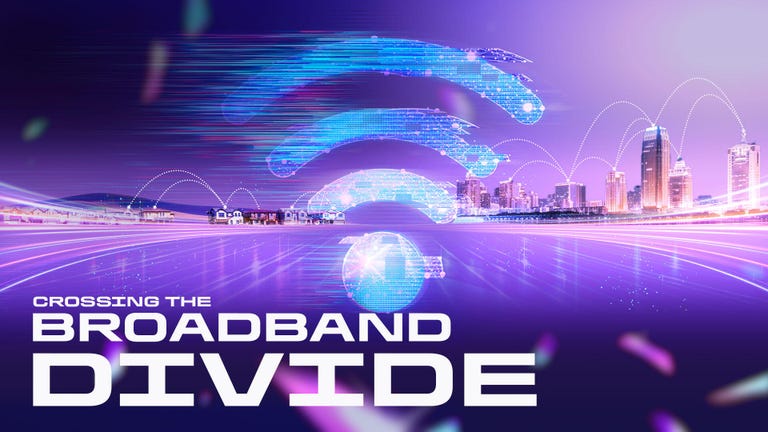
Kenneth Sigler is about to have a difficult choice to make. For the past year, the 41-year-old small business owner from Hernando, Mississippi, has been using the Federal Communications Commission’s Affordable Connectivity Program, which provides low-income households $30 a month for home internet or $70 for those living on tribal lands. One in five Americans with internet subscriptions currently use the program to help pay for internet.
This story is part of Crossing the Broadband Divide, CNET’s coverage of how the country is working toward making broadband access universal.
As the agency has been warning for months, the FCC recently began notifying recipients that funds would likely run out in April, and their internet bills would soon increase. Tharon Green/CNETFor Sigler, losing internet isn’t an option, so he’ll have to cut corners elsewhere. He relies on the internet for his business — and just as critically, for his mental health, including online psychiatry appointments he’d already pared back from weekly to monthly sessions. Sigler is one of an estimated 59 million Americans who are enrolled in the ACP. He’s also one of 31 million adults who receives mental health treatment online. “I’ll be honest, this year I’ve already cut back on my doctor’s appointments tremendously,” Sigler said.These are the ripple effects of the “digital divide,” a term that refers to the gap between those who have access to — and the means to afford — a speedy broadband internet connection and those who don’t. It’s been around nearly as long as the internet itself; a 1995 report by the National Telecommunications and Information Administration referred to internet “have nots” in rural America. The looming end of the ACP, and the alarm it has triggered among dozens of experts I’ve talked to, reveals that this federal program is about much more than internet access. Amid a rising mental health crisis, limited access to broadband has been clearly linked with negative health outcomes for America’s lowest-income communities. “It’s really coming up quickly. I know we’re all kind of scrambling, trying to find ways for our clients to continue working with us,” Havi Hall, a therapist practicing in California, told CNET. “It’s wonderful that it was there. When it gets to the end of something that’s been so crucial for people, it becomes very scary.”So what does a $30-per-month subsidy mean for the mental health of America’s lowest-income communities? As the ACP teeters on the brink, we may soon find out. I talked with therapists, researchers and users of the programs to learn how they’re planning for life without the ACP, what effects it will have on America’s mental health crisis and if there are any other alternatives. There are a few federal and state p …
[wpts_spin]{Read|See} the {entire|full} article {on|about} infrastructure development in Arizona, or, read more news about {Arizona real estate investing|real estate investing in Arizona|real estate investing in Arizona}. We {warmly |}{welcome and |}encourage you to {mention|recommend} our site to your{ circle of|} fellow investors, {letting them |allowing them to }benefit from the valuable{ resources and|} insights we provide. {Thanks!|Thank you!}[/wpts_spin]





